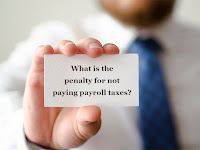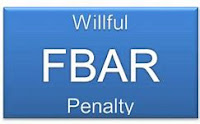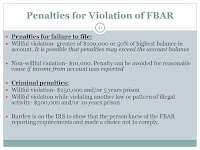On March 1, 2022 we posted IRS Reminds Taxpayers To Report Gig Economy Income & Virtual Currency Transactions, where we discussed that in IR-2022-45 the Internal Revenue Service reminded taxpayers of their reporting and potential tax obligations from working in the gig economy & making virtual currency transactions.
Now the Internal Revenue Service announced on December 23, 2022, a delay in reporting thresholds for third-party settlement organizations set to take effect for the upcoming tax filing season.
As a result of this delay,
third-party settlement organizations will not be required to report tax year
2022 transactions on a Form 1099-K to the IRS or the payee for the lower, $600
threshold amount enacted as part of the American Rescue Plan of 2021.
As part of this, the IRS
released guidance today outlining that calendar year 2022 will be a transition
period for implementation of the lowered threshold reporting for third-party
settlement organizations (TPSOs) including Venmo, PayPal and CashApp that would
have generated Form 1099-Ks for taxpayers.
“The IRS and Treasury heard a number of concerns regarding the timeline of implementation of these changes under the American Rescue Plan,” said Acting IRS Commissioner Doug O’Donnell.
The additional time will help reduce confusion during the upcoming 2023 tax
filing season and provide more time for taxpayers to prepare and understand the
new reporting requirements.”
The American Rescue Plan of
2021 changed the reporting threshold for TPSOs. The new threshold for business
transactions is $600 per year; changed from the previous threshold of more than
200 transactions per year, exceeding an aggregate amount of $20,000. The law is
not intended to track personal transactions such as sharing the cost of a car
ride or meal, birthday or holiday gifts, or paying a family member or another
for a household bill.
Under the law, beginning Jan.
1, 2023, a TPSO is required to report third-party network transactions paid in
2022 with any participating payee that exceed a minimum threshold of $600 in
aggregate payments, regardless of the number of transactions. TPSOs report
these transactions by providing individual payee’s an IRS Form 1099K, Payment Card and Third-Party Network
Transactions.
The transition period described
in Notice 2023-10, delays the reporting of transactions in
excess of $600 to transactions that occur after calendar year 2022. The
transition period is intended to facilitate an orderly transition for TPSO tax
compliance, as well as individual payee compliance with income tax reporting. A
participating payee, in the case of a third-party network transaction, is any
person who accepts payment from a third-party settlement organization for a
business transaction.
Additional details on the delay will be available in the near future along with additional information to help taxpayers and the industry. For taxpayers who may have already received a 1099-K as a result of the statutory changes, the IRS is working rapidly to provide instructions and clarity so that taxpayers understand what to do.
The IRS also noted that the
existing 1099-K reporting threshold of $20,000 in payments from over 200
transactions will remain in effect.
Have an IRS Tax Problem?
www.TaxAid.com or www.OVDPLaw.com
or Toll Free at 888 8TAXAID (888-882-9243)





.JPG)















